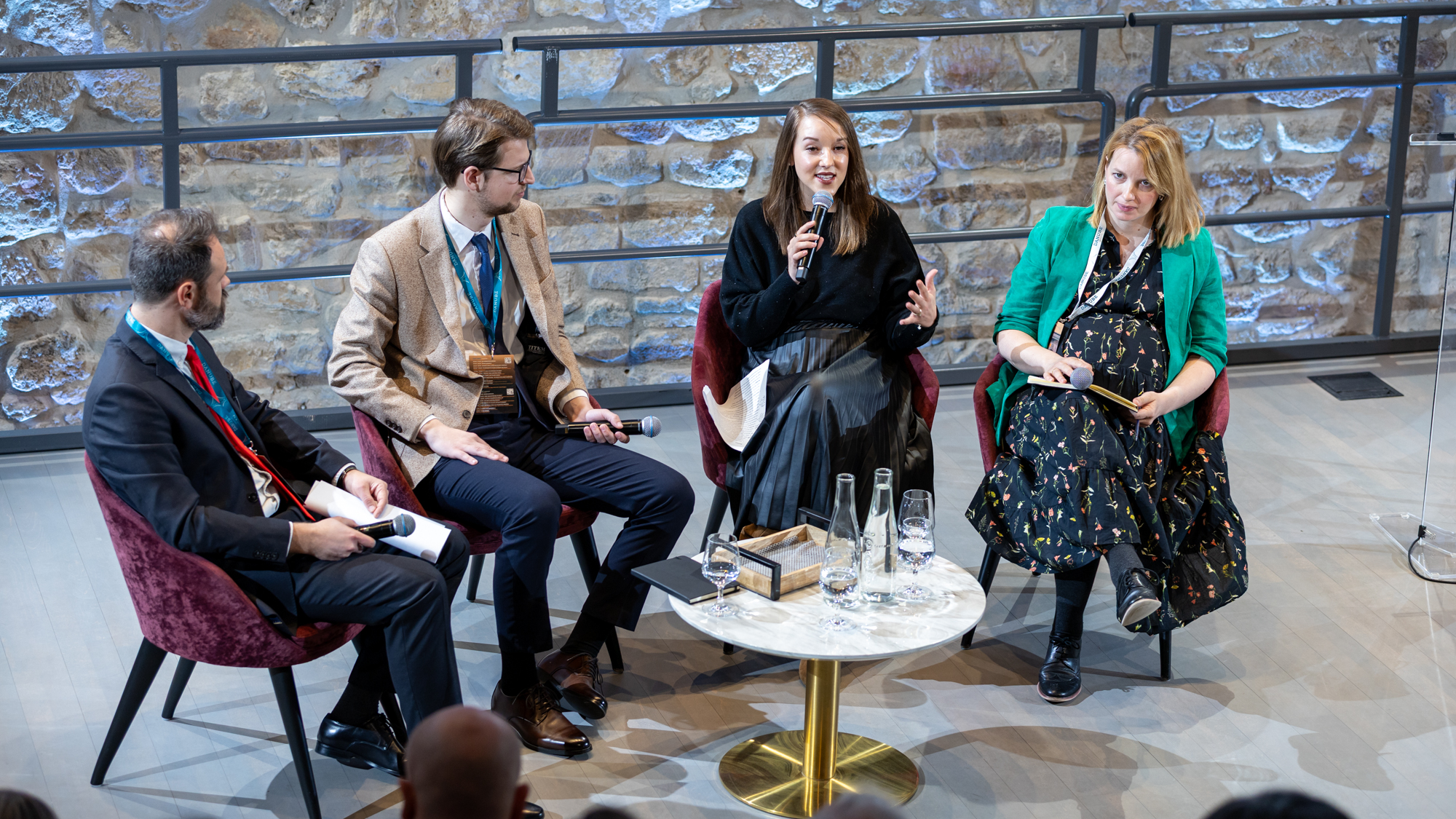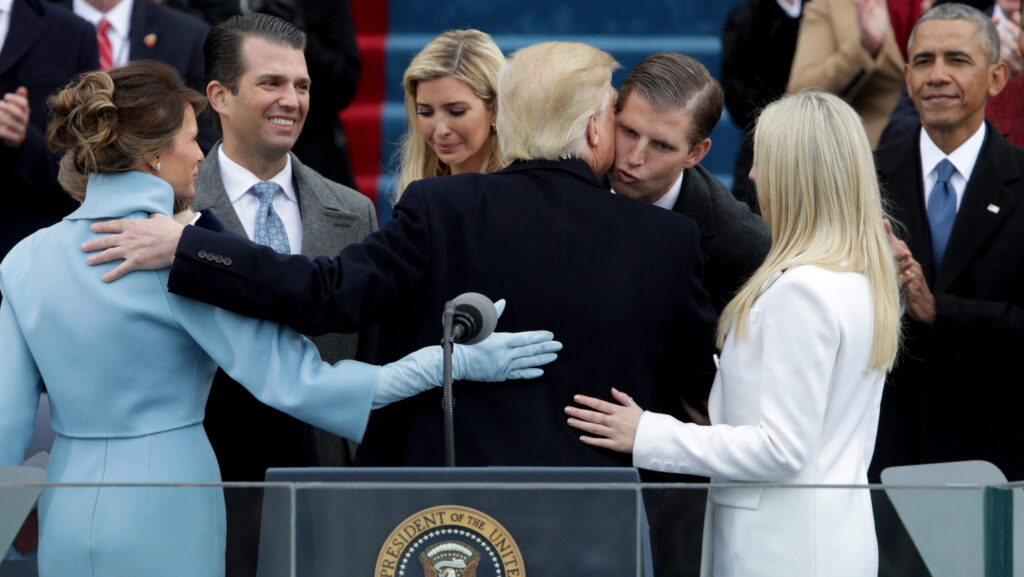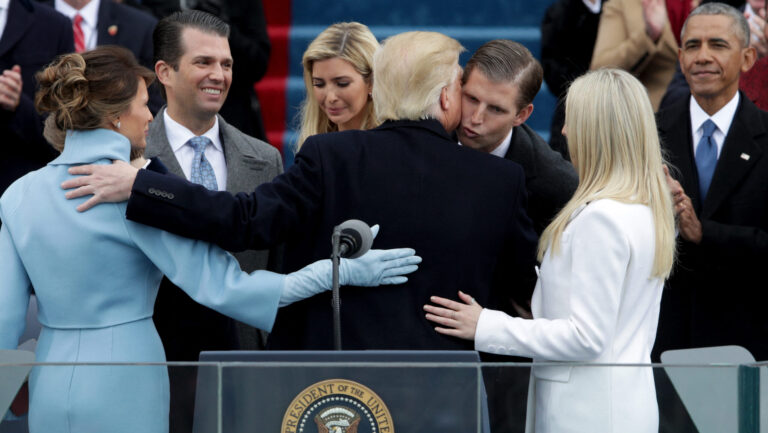The two-day conference on family formation—and the geopolitical, cultural, and legal dimensions of demographic decline in Western societies—organized by the Budapest-based Danube Institute kicked off on Tuesday with a series of high-level keynote speeches. Among the speakers was Hungarian Minister of Culture and Innovation Balázs Hankó. The opening session was followed by the first panel discussion, which took a closer look at how Americans and Hungarians view family life, raising children, and the family policies shaping their respective countries.
Strong Nation, Strong Community, Strong Family
Before the panel got underway, Head of Research at the Youth Research Institute at Mathias Corvinus Collegium Georgina Kiss-Kozma (a co-organizer of the event) gave a lecture stressing the broader economic and societal value of having children—pointing to South Korea as a cautionary tale. With one of the world’s lowest fertility rates, South Korea shows how a sharp decline in birth rates can threaten not only economic stability, but cultural continuity. ‘We are in a crisis of the institution of traditional families,’ she said, noting that many in elite circles still downplay the problem, treating the family as outdated.
Drawing on findings of the Youth Research Institute, she highlighted that married couples report higher levels of satisfaction than those cohabiting. While surveys show that both Hungarians and Americans see more than two children as ideal, climate concerns are increasingly leading young people to delay or forgo parenthood. Many now postpone starting families until their late thirties or even forties—despite biological evidence suggesting that the mid-twenties is the most favourable time to have children.
‘Strong nations are built by strong communities,’ Kiss-Kozma opined. And strong communities, she added, begin with families. In this spirit, Hungary has developed a far-reaching family support system aimed at reinforcing marriage and encouraging childbirth as core social priorities.
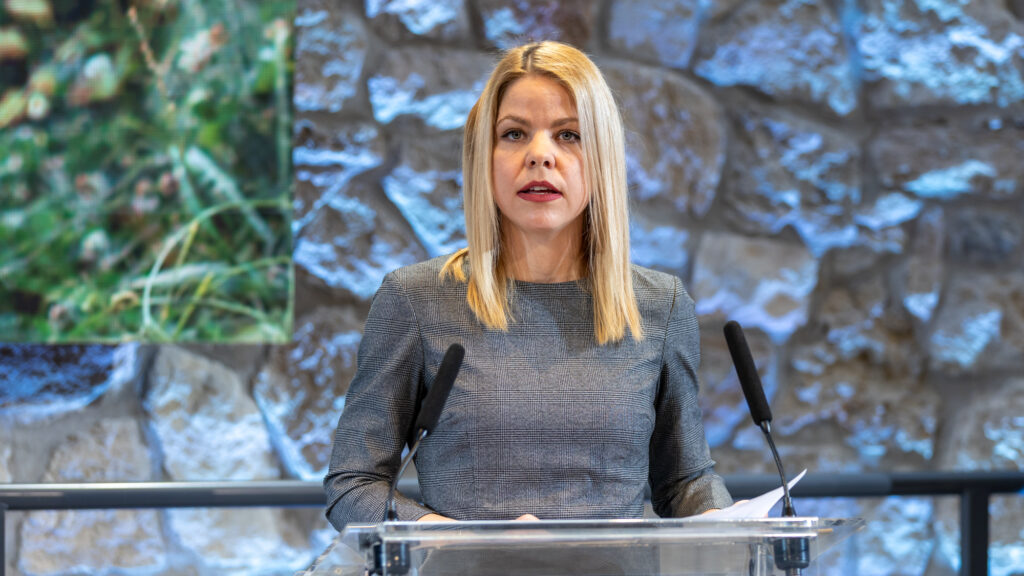
JD Vance Driving Pro-Family Shift
The panel discussion that followed, titled ‘Demographic Picture in Hungary and the United States’, was moderated by Head of MCC’s Youth Research Institute Levente Székely. It aimed to dig deeper into the roots of the demographic crisis. Székely noted that more than half the countries in the world now fall below replacement level. But this, he said, is not simply an economic problem—it is also ideological and civilizational.
Researcher at The Heritage Foundation Emma Waters—who joined the conference with her three-month-old baby—was clear in her view: ‘This is certainly a civilizational crisis.’ She pointed out that the fall in marriage rates preceded the drop in birth rates, and argued that rebuilding marriage must be a cultural priority.
Waters credited the Trump administration with helping to shift the conversation in the United States. One of the key figures driving this shift, she said, is Vice President JD Vance, who has emerged as a strong pro-family advocate. ‘He is setting the national tone that we are not only pro-child, we are also pro-family,’ she said. Vance’s inauguration, where his entire family stood alongside him, sent a clear message: family is not separate from public life—it is central to it. Both Waters and Fröhlich stressed the importance of normalizing the presence of children—in the workplace, in public life, and in cultural spaces as well.
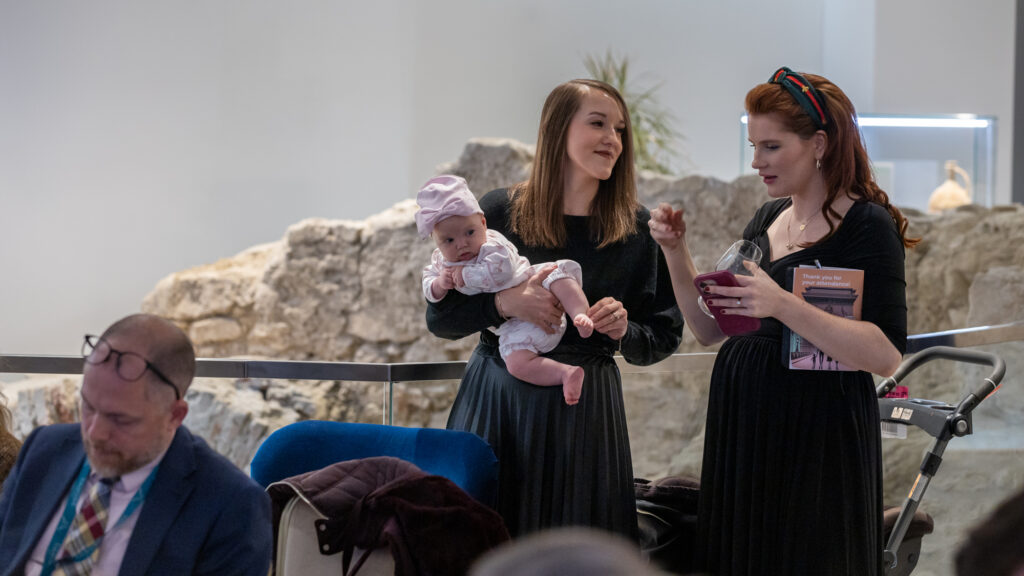
Winning Back the Youth
Waters also warned that focusing the discussion solely on the need for more children risks putting off younger generations. ‘Why is it my job to have kids for you?’ she said, summing up a sentiment she often hears. Instead, she argued for a more positive narrative—one that emphasizes the joy and meaning of raising children. ‘Having children reflects the spiritual well-being of a nation,’ she said, adding that policy must go hand in hand with a culture that makes family life attractive and possible.
Researcher at Ludovika University Johanna Fröhlich echoed those thoughts. ‘Parenthood is not something you suffer through,’ she said. ‘It is a source of flourishing.’ Citing her own work on motherhood, she argued that raising children is not just a private matter—it is a civic act that helps shape the next generation of free and imaginative citizens. She also pushed back against the notion that parenthood and intellectual life are incompatible, urging society to see mothers and fathers as capable of leading full cultural and intellectual lives alongside raising children.
Collegium Commissioner at MCC Gergely Réti focused his remarks on the issues young people face today: fragile mental health, weaker community bonds, and difficulty forming stable relationships. ‘First of all, we have to strengthen youth communities,’ he said. ‘It’s not easy to find a partner today.’ Réti acknowledged the concrete tools Hungary’s family policy offers—such as tax exemptions for those under 25—but stressed that long-term change requires a cultural shift. ‘Family policy is not the policy of fast results,’ he said.
‘Raising children is not just a private matter—it is a civic act that helps shape the next generation of free and imaginative citizens’
The panel also touched on questions around reproductive health and technology. Waters drew attention to the rise in infertility, often linked to conditions like PCOS and endometriosis. ‘We need better body literacy,’ she said. She also criticized certain trends—such as permanent birth control, abortion, and some reproductive technologies—that she believes distance people from their bodies and from the idea of parenthood.
Fröhlich added that conversations around family must go beyond wages and economic incentives. ‘Being a mother is a job, yes—but it’s more than that,’ she said. ‘The essence of family policy is cultural.’
The panel didn’t offer quick solutions—but what it did offer was a clear call for honesty and resolve. As the speakers made clear, demographic renewal is not just a question of numbers. It’s about restoring a culture that values marriage, welcomes children, and recognizes that the family is not a relic of the past—but the foundation of the future.
Related articles:

